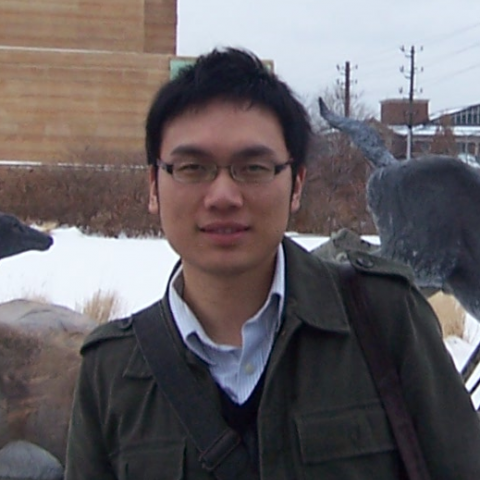People: Molecular Neurobiology And Developmental Neuroscience
Santhosh Girirajan
Professor of Genomics; Professor of Anthropology; Department Head of Biochemistry and Molecular Biology
Understanding the genetic basis of neurodevelopmental disorders.
Joshua Gross
Assistant Professor of Nutrition and Biobehavioral Health
Cellular- and transgenic mouse model-based approaches to investigate the molecular mechanisms of G protein-coupled receptor (GPCR) signaling and trafficking in the pathophysiological contexts of obesity, eating disorders, and metabolic disease.
Timothy Jegla
Emphasis Area Representative, Molecular and Evolutionary Genetics; Associate Professor of Biology
Functional evolution of eukaryotic ion channels and evolution of neuronal signaling and cell structure.
Janine Kwapis
Director of the Center for Molecular Investigation of Neurological Disorders; Assistant Professor of Biology
Molecular and epigenetic mechanisms underlying learning and memory and age-related memory impairments.
Aimin Liu
Associate Professor of Biology
Biogenesis and function of cilia in mammalian embryonic development.
Yingwei Mao
Professor of Biology
Regulation of neurogenesis using cellular and mouse models; analysis of abnormal neural progenitor cell (NPC) proliferation and its relationship to mental illnesses; identification of drugs that can reverse mouse models of psychiatric disorders.
Melissa Rolls
Lead Huck Graduate Chair; Chair, Intercollege Graduate Degree Program in Molecular, Cellular, and Integrative Biosciences; Director of the Center for Cellular Dynamics; Paul Berg Professor of Biochemistry and Molecular Biology
Subcellular compartmentalization of neurons. The cellular basis of neuronal polarity and neuronal responses to injury including degeneration and regeneration.
Moriah Szpara
Professor of Biology
How genetic variation influences the outcomes of viral infection, particularly for neurotropic viruses such as herpes simplex virus 1 (HSV-1) and HSV-2, using high-throughput sequencing, comparative genomics, neuronal cultures, and genetic manipulation of both host and pathogen.
Ruobo Zhou
Assistant Professor of Chemistry
Quantitatively and functionally understanding the compartmentalization and spatiotemporal organization of protein-protein and protein-RNA interactions involved in fundamental cell functions as well as in cancer and neurodegenerative diseases.








